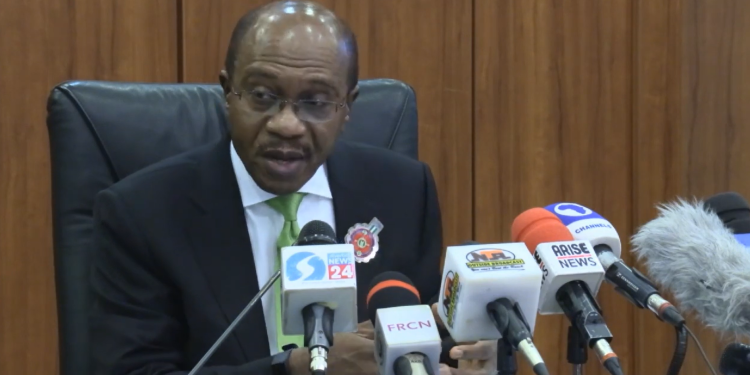The Central Bank of Nigeria (CBN) has reviewed the tenure of Executive Management and Non-Executive Directors of Deposit Money Banks and Financial Holding Companies with effect from February 24, 2023.
The apex bank in the revised edition of the bank’s corporate governance released on Friday stated that the cumulative tenure limit for Executive Directors, Deputy Managing Directors, Managing Directors, and Non-Executive Directors across the banking industry shall not exceed 20 years.
This disclosure is contained in a statement issued by the CBN’s Director of Financial Policy and Regulation Department, Chibuzo Efobi, stating that the move is to strengthen governance practices in the banking sector.
The CBN said that the tenure of Executive Directors (ED), Deputy Managing Directors (DMD) and Managing Directors (MD) are subject to a maximum period of 10 years, while Non-Executive Directors are expected to serve a maximum period of 12 years.
Bank Executives, Non-Executive Directors shall not exceed 10-12 years
CBN in the circular stated that an Executive Director who is a DMD and later becomes an MD/CEO of the bank before the end of his/her tenure is expected to have a cumulative tenure not exceeding 12 years.
The circular from CBN partly reads,
- “The tenure of Executive Directors (ED), Deputy Managing Directors (DMD), and Managing Directors (MDs) shall be in accordance with the terms of their engagement approved by the Board of Directors of banks, subject to a maximum tenure of ten (10) years,” the circular read.
- “Where an Executive who is a DMD becomes the MD/CEO of a bank or any other DMB before the end of his/her maximum tenure, the cumulative tenure of such Executive shall not exceed twelve (12) years.
- “However, for an Executive (ED) who becomes a DMD of a bank or any other DMB, his/her cumulative tenure as ED and DMD shall not exceed 10 years.
- “Non-Executive Directors (NEDs), with the exception of Independent Non-Executive Directors (INED), shall serve for a maximum period of twelve (12) years in a bank, broken into three terms of four years each.
- “EDs, DMDs, and MDs who exit from the Board of a bank either upon or prior to the expiration of his/her maximum tenure shall serve out a cooling-off period of 1 year before being eligible for appointment as a NED to the Board of Directors.
- “NEDs who exit from the Board of a bank either upon or prior to the expiration of his/her maximum tenure of 12 years (3 terms of 4 years each), shall serve out a cooling-off period of 1 year before being eligible for appointment to the Board of Directors of any other DMB.
- “The cumulative tenure limit of EDs/DMDs, MDs, and NEDs across the banking industry is 20 years.”
What this means
The new circular is a sweeping change to the tenure of bank executives especially those that have held executive positions for years. The last time a similar circular was issued was in 2011 when the central bank limited the tenure for being a managing director of a commercial bank to a cumulative of ten years.
- The latest circular appears to target bank executives who have moved to be chief executive officers of their banks to being chief executives of bank holding companies.
- It also appears to target former bank executive directors or chief executives who have remained on the board of banks for a cumulative period of over 20 years. Some of these directors may have to resign from their positions.
- Another set of affected targets are the founders or former managing directors/chief executives of banks who have moved on to be chairmen of the banks. They will likely have to resign their positions if they have been in executive and non-executive positions for over 20 years.
The new policy will likely hasted succession planning in Nigeria’s banking sector as executives who have remained general managers may now have a quicker shot at being executive directors, while those that have been executive directors may also have a quicker shot at being managing directors but also have a firm term limit.
Critics of the policy might view this as an attempt to target certain people of interest who may have been in executive and non-executive position of banks for years.













